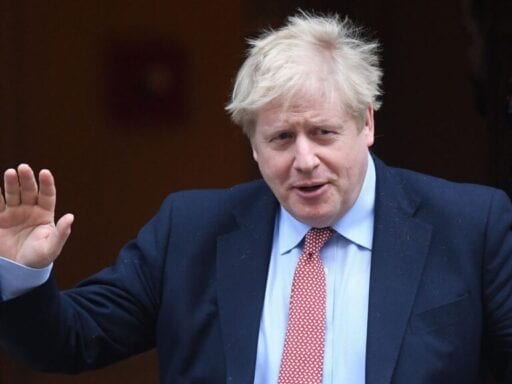Johnson says his symptoms are mild, and he will self-isolate and continue to lead the UK’s response to the pandemic.
British Prime Minister Boris Johnson has tested positive for the coronavirus.
Johnson will self-isolate at his residence at 10 Downing Street, and continue to lead the government response to the coronavirus pandemic, a spokesperson said.
In a video posted Friday, Johnson said that he had developed mild symptoms of Covid-19 — a fever and “persistent cough.” He took a test, and it came out positive.
“So I am working from home, I’m self-isolating and that’s entirely the right thing to do,” Johnson said. “But, be in no doubt, that I can continue, thanks to the wizardry of modern technology, to communicate with all my top team to lead the national fight back against coronavirus.”
Over the last 24 hours I have developed mild symptoms and tested positive for coronavirus.
I am now self-isolating, but I will continue to lead the government’s response via video-conference as we fight this virus.
Together we will beat this. #StayHomeSaveLives pic.twitter.com/9Te6aFP0Ri
— Boris Johnson #StayHomeSaveLives (@BorisJohnson) March 27, 2020
Johnson also credited the staff of the National Health Service and public service workers and volunteers for their participation in a “national effort” against the coronavirus.
“We will get through it and the way we’re going to get through it is of course by applying the measures that you’ll have heard so much about,” he said. “And the more effectively we all comply with those measures, the faster our country will come through this epidemic, and the faster we’ll bounce back.”
Johnson and 10 Downing Street have said the prime minister will continue to coordinate the government’s coronavirus response remotely, though earlier this week foreign minister Dominic Raab was named the “designated survivor” in case Johnson became ill and needed someone to assume his responsibilities.
The UK Parliament went into recess March 26 until at least April 21, after approving emergency coronavirus legislation this week.
Johnson’s diagnosis comes after the prime minister implemented strict stay-at-home measures Monday that shuttered businesses and limited gatherings to two or more people. The mandate is in place for at least three weeks.
The United Kingdom has confirmed 11,800 cases of coronavirus, and recorded nearly 580 deaths. The country hasn’t been hit as hard as others in Europe, but the UK government lagged behind in adopting those strict social distancing measures.
The UK’s early coronavirus response also faced widespread criticism, after the government balked on banning mass gatherings and closing schools, and even exposing a large portion of the British population to the virus to help establish “herd immunity.”
Johnson and the UK government has drastically reversed course since, suspending gatherings, orders restaurants, bars, and pubs to shut, and advised people to stay indoors.
Other prominent politicians have been diagnosed with the coronavirus, including the leader of Italy’s democratic party and Spain’s deputy prime minister. Earlier this week, the Prince Charles also tested positive for coronavirus.
Still, Johnson is might be one of the most prominent elected world leaders to confirm a positive diagnosis, though others, including Canadian Prime Minister Justin Trudeau (who’s wife tested positive for the coronavirus) and German Chancellor Angela Merkel (who’s doctor tested positive for coronavirus) are also running their respective countries from quarantine over concerns they were exposed to the virus.
President Donald Trump has also been tested for the coronavirus, which he and his doctor have said came out negative. Earlier in March, Trump met with Brazilian President Jair Bolsonaro at Mar-a-Lago, after which a top aide to Bolsonaro tested positive for coronavirus. After some confusion, Brazilian President Jair Bolsonaro also said he tested negative. Neither of those leaders — who have both dismissed the severity of the coronavirus pandemic at points — put themselves under self-quarantine.
Author: Jen Kirby
Read More



